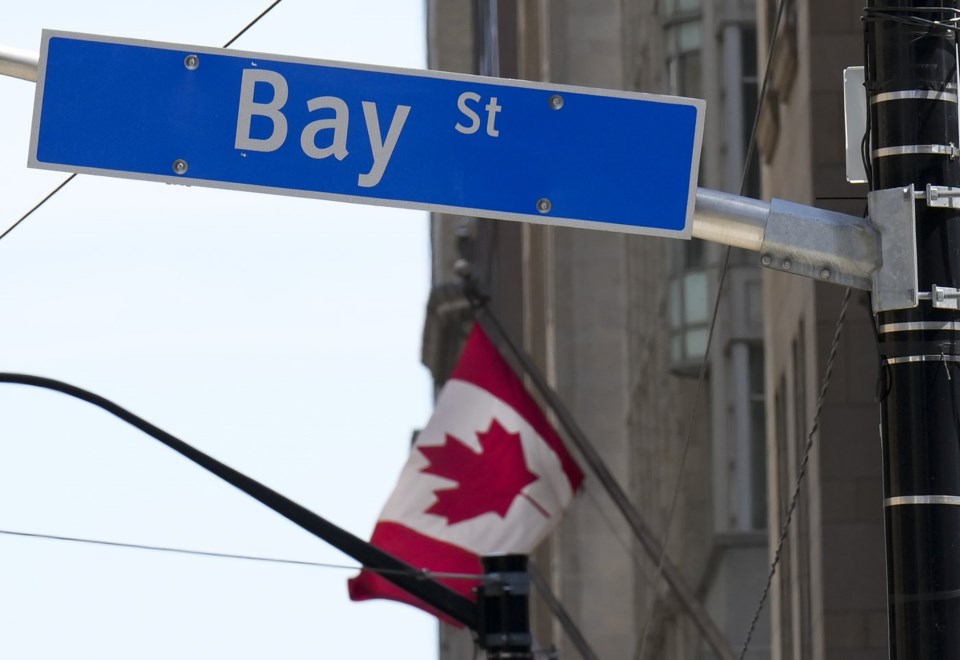TORONTO — The Toronto financial sector's emissions impact is much more than what is self-declared, says a new report that urges the city to push for more climate action from the industry.
The report produced by the Toronto Climate Observatory says the 18 largest financial institutions based in the city, including banks, asset managers and pension funds, collectively directed more than $1.43 trillion in financing toward fossil fuel companies in 2022.
It says the total across the group works out to the equivalent of 1.44 billion tonnes of carbon dioxide emissions — twice the amount of Canada's overall emissions for the year.
The results come in much higher than what big institutions like banks are reporting themselves, said lead author Robert Soden.
"There's huge discrepancies," said Soden. "They stem from just really inconsistent reporting practises."
There are international guidelines around how to disclose financed emissions, most notably the Partnership for Carbon Accounting Financials, which he claims the financial institutions aren't properly following.
While banks have started to disclose the financed emissions from their lending activities, there's an especially big gap in the emissions impact from their equity investments, the report says.
RBC's self-reported financed emissions for 2022 totalled the equivalent of 38 million tonnes of carbon dioxide, but the Toronto Climate Observatory team figures the total is closer to 233.3 million tonnes, or more than 500 per cent more.
Results for BMO are even more stark, with the report estimate of 169.6 million tonnes coming in at a little over 2,200 per cent higher than what the bank itself reported.
The assessment for TD, meanwhile, found its emissions were a relatively small 32 per cent higher.
RBC spokesman Andrew Block said the authors didn't check their figures with the bank so it's not really in a position to comment. But he noted the report seems to be mixing the bank's own lending activity with investments by RBC Global Asset Management, which are not RBC assets but owned by clients.
BMO directed comment to the Canadian Bankers Association, which didn't directly address the findings of the report but emphasized the action banks are taking on climate.
"The banking sector in Canada understands the important role that it can play in facilitating an orderly transition to a lower-carbon future. Banks in Canada are working on implementing climate action plans and reporting on their actions," said spokeswoman Maggie Cheung.
She said that banks are working to accelerate clean economic growth, as well as engage with regulators and standard setters as they establish rules in relation to climate risk management and disclosure.
Soden said the results of the report show there's much more to be done both on the reporting side, as well as action to actually reduce emissions.
"We just see this as a real opportunity to be much more clear and specific about what is the city of Toronto's particular role in the global climate crisis and thus, what are the opportunities that the city has to intervene," he said.
This report by The Canadian Press was first published Oct. 8, 2024.
Ian Bickis, The Canadian Press



